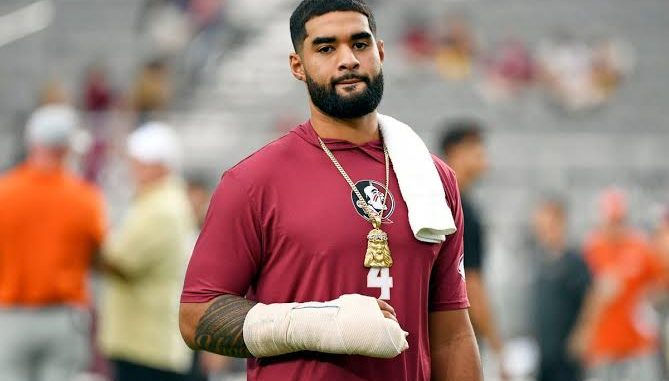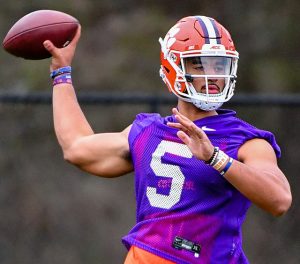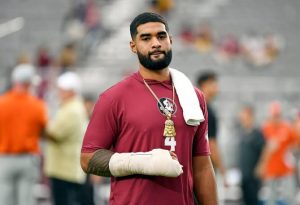
In a shocking turn of events for the Florida State Seminoles community, quarterback DJ Uiagalelei has reportedly threatened to leave the team if urgent action is not taken regarding ongoing issues affecting his performance and the overall team dynamic. As one of the more high-profile transfers to the Seminoles, Uiagalelei’s situation has captivated both fans and analysts alike, raising questions about team cohesion, leadership, and the pressures faced by student-athletes today.
Dj Uiagalelei, previously a standout at Clemson University, made headlines when he decided to join Florida State in search of a fresh start and a chance to revitalize his college football career. However, the start to his season has been rocky, and the mounting frustrations seem to have reached a boiling point. Recent reports indicate that Uiagalelei has voiced concerns about the team’s offensive strategies, lack of support from coaching staff, and shortcomings in team communication. His public acknowledgment of these issues reflects the high expectations placed on him, both by himself and by the Seminoles’ fanbase.
The context surrounding Uiagalelei’s comments is crucial. Florida State has struggled in recent seasons, with their last significant breakthrough coming long before Uiagalelei’s arrival. The pressure to return the Seminoles to national prominence weighs heavily on the shoulders of all its players, especially its quarterback. When key players like Uiagalelei express dissatisfaction, it raises alarms about the team’s internal dynamics. His threat to leave the team could serve as a wake-up call for the coaches and administration to reassess their strategies and support mechanisms in order to retain their star quarterback.

This situation also casts a spotlight on the broader conversation surrounding mental health and player well-being in college sports. The demands placed on student-athletes can be intense, and many struggle to balance their obligations both on and off the field. Uiagalelei’s revelation suggests that he may be feeling overwhelmed and unsupported, raising concerns about how the program is addressing player welfare. It is critical for coaching staffs to foster an open and transparent environment where athletes feel comfortable expressing their thoughts and concerns without fear of repercussions.
Additionally, the potential ramifications of Uiagalelei’s threat extend beyond the immediate context of Florida State. The scrutiny that comes with scholarship offers, NIL deals, and media attention creates an environment ripe for player discontent. If a player of Uiagalelei’s caliber considers leaving, it sends a message to recruits and current team members that the program may lack the necessary structure or support to thrive.
As this narrative develops, fans and analysts alike will be monitoring how Florida State responds to Uiagalelei’s threat. Will the coaching staff take his concerns seriously and implement changes to improve the situation, or will this simply be brushed aside? The coming weeks could be instrumental for both the Seminoles and their quarterback, affecting not only the trajectory of their current season but potentially shaping the future of the program as well.

In conclusion, DJ Uiagalelei’s recent threat to leave the Florida State Seminoles underscores a critical moment for the program. As the team navigates these turbulent waters, its approach to leadership, player support, and team unity will be pivotal in determining their success both on and off the field. It remains to be seen whether this will serve as a catalyst for positive change or a further indication of the challenges that lie ahead for the Seminoles.

Leave a Reply